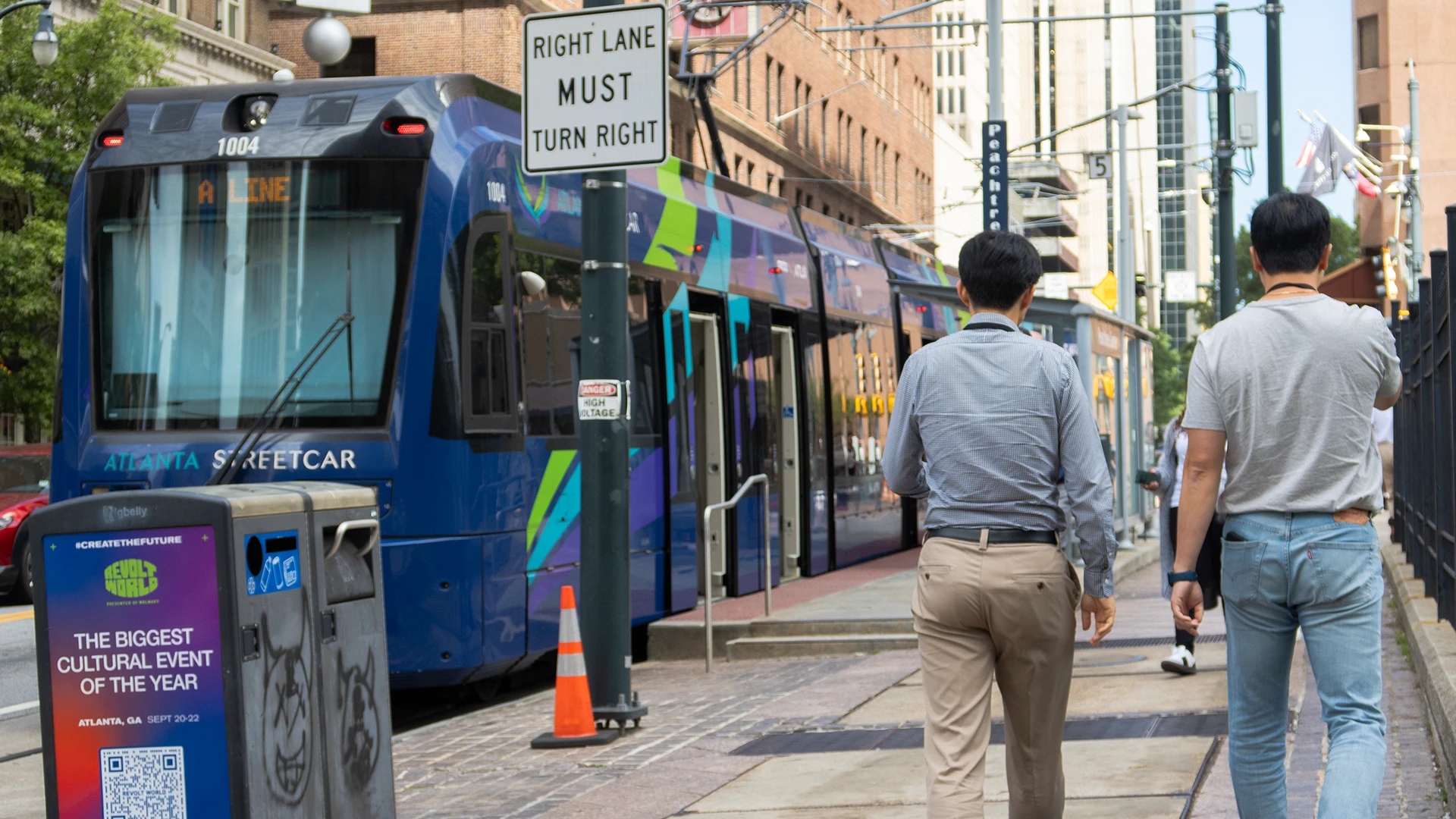The Atlanta region is booming. According to the latest forecast from the Atlanta Regional Commission (ARC), metro Atlanta will add 1.8 million new residents by 2050—the equivalent of adding a population the size of metropolitan Nashville—bringing the area to 7.5 million people in total. The major driver of this growth is the economy and ARC’s employment forecast anticipates adding 856,000 jobs through 2050.
This growth is increasing demand for mobility options and placing additional pressure on the region’s already challenged transportation system. In September, Georgia Commute Options hosted a webinar to help Atlanta area employers understand commuting needs and opportunities for a growing workforce. The event was hosted by Arcadis communications manager Nicole Carsten and GCO worksite advisor Shayla Cato.
Short on time? Here’s a quick recap of the webinar:
Mobility Challenges
The webinar shed insight into some of the challenges our current transportation and mobility systems face, such as lack of public transit options in underserved communities, long commute times and the high cost of vehicle ownership.
Underserved populations
Atlanta’s transit network is concentrated in the urban core (particularly Cobb, Gwinnett, North Fulton and North DeKalb counties), where employment centers are located, missing traditionally underserved residential areas. Many people live or work in areas that are not served by public transportation. Nearly 4 in 10 (38%) residents who live in underserved tracts also commute at off-peak times (for example, overnight shifts), so transit schedules don’t align with their needs. Others work just beyond the reach of transit, with no first/last mile options available.
Long commute times
Atlanta consistently ranks at the top for some of the worst traffic congestion and commute times. This represents a substantial investment in time people are making to arrive at their jobs each day. According to a 2023 global traffic report from Inrix, Atlanta drivers lost 61 hours stuck in traffic. This poses an issue not just for commuting employees, but also for employers trying to get their workers to come to the workplace. In a 2022 survey of commuters in Metro Atlanta, 60% of employees reported their commute as a main factor impacting their willingness to return to the jobsite.
Other commute barriers include:
- Not owning a car
- Transportation expenses such as gas, car payments and maintenance, are second highest cost of living expense after housing
- Language barriers and/or lack of technology access also make it more difficult for people to access information on available transportation services
Partnerships are critical to creating mobility connections and expanding economic opportunities equitably.
The ARC’s TDM program consists of Georgia Commute Options, the regional provider of TDM services, working in conjunction with six Transportation Management Associations that provide TDM services within specific employment centers throughout the region. GCO also partners with community partners (chambers, nonprofits organizations, Capital Improvement Districts) and employers to help them solve their transportation challenges.
Making the commute easier
Employers who want to remain competitive, and who are committed to recruiting and retaining the best talent to ensure business continuity, look for ways to support employees through great benefits—such as offering wellness programs, supporting mental health, offering financial retirement accounts and matching contributions.
Adding commuter benefits to your menu of options will not only help you reduce costs, attract talent, meet sustainability goals and create a positive work culture but also let employees know that they’ve made the right decision by coming to their company.
GCO’s programs are good for commuters and great for business. We help your workforce find more affordable, reliable and stress-free ways to get to work, while providing wraparound services that support employers in the following ways:
- Empowerment through education – Access to tailored commuting resources and workshops, on-site events, virtual webinars, custom collateral and more.
- Enhanced work-life balance – Reduced commuting stress and improved quality of life for your employees
- Personalized planning – Data-driven, customized commuter program recommendations and flexwork/telework support
- Cost savings and sustainability – Using eco-friendly transportation options and commuter tax benefits
Want to learn more? You can Watch the webinar here!
Georgia Commute Options—a program made possible by the Atlanta Regional Commission and Georgia Department of Transportation—works with employers at no cost to develop commuter programs that move the needle on air quality in the Atlanta region. Let’s discuss how we can help.
